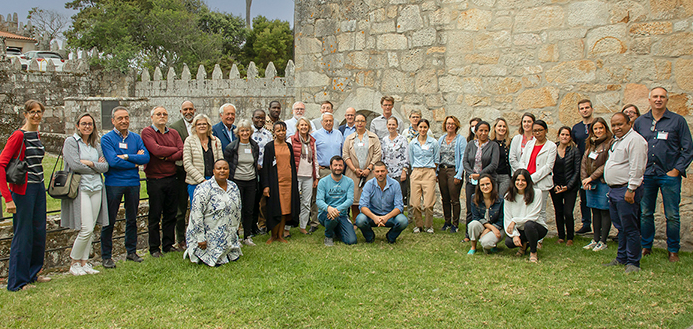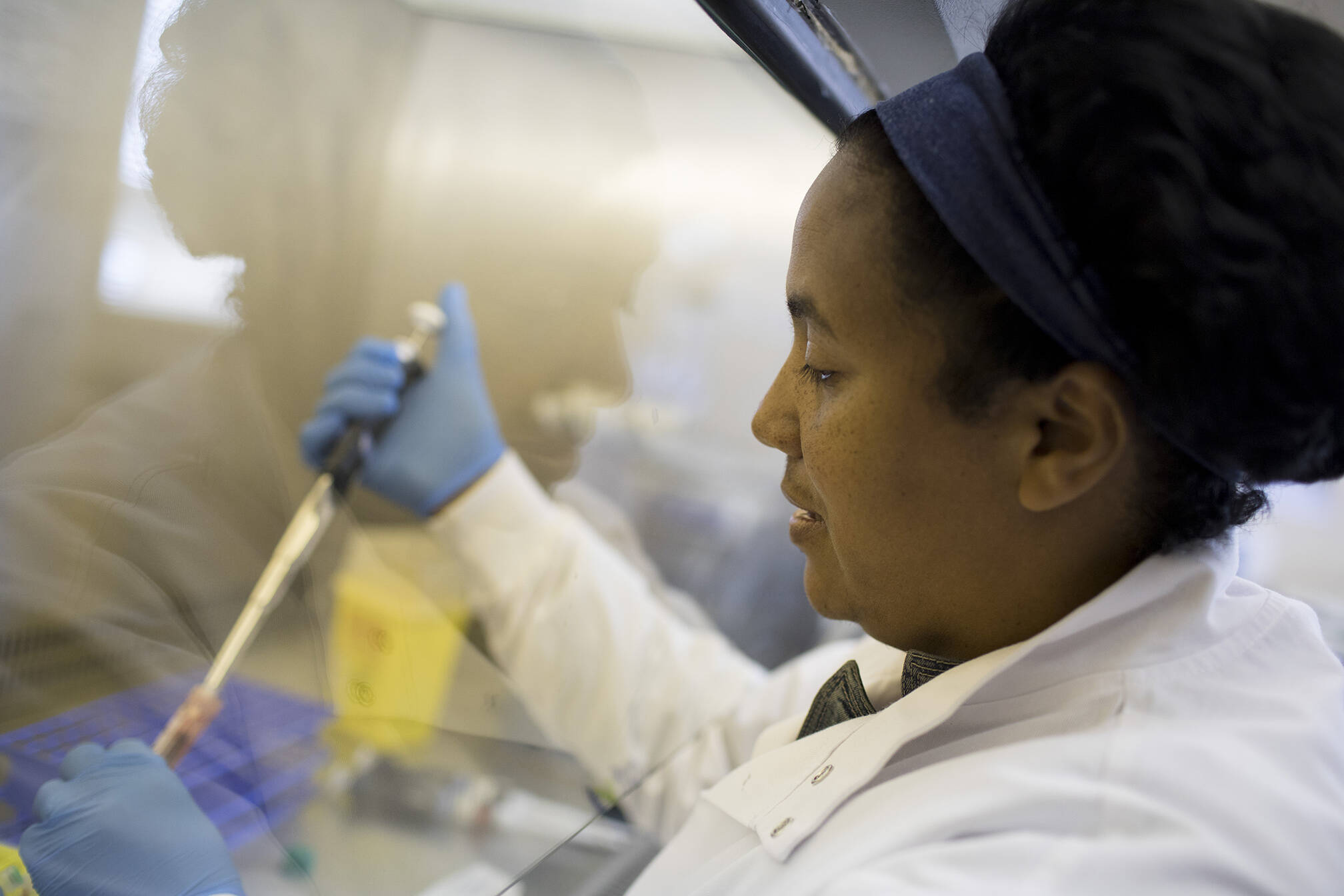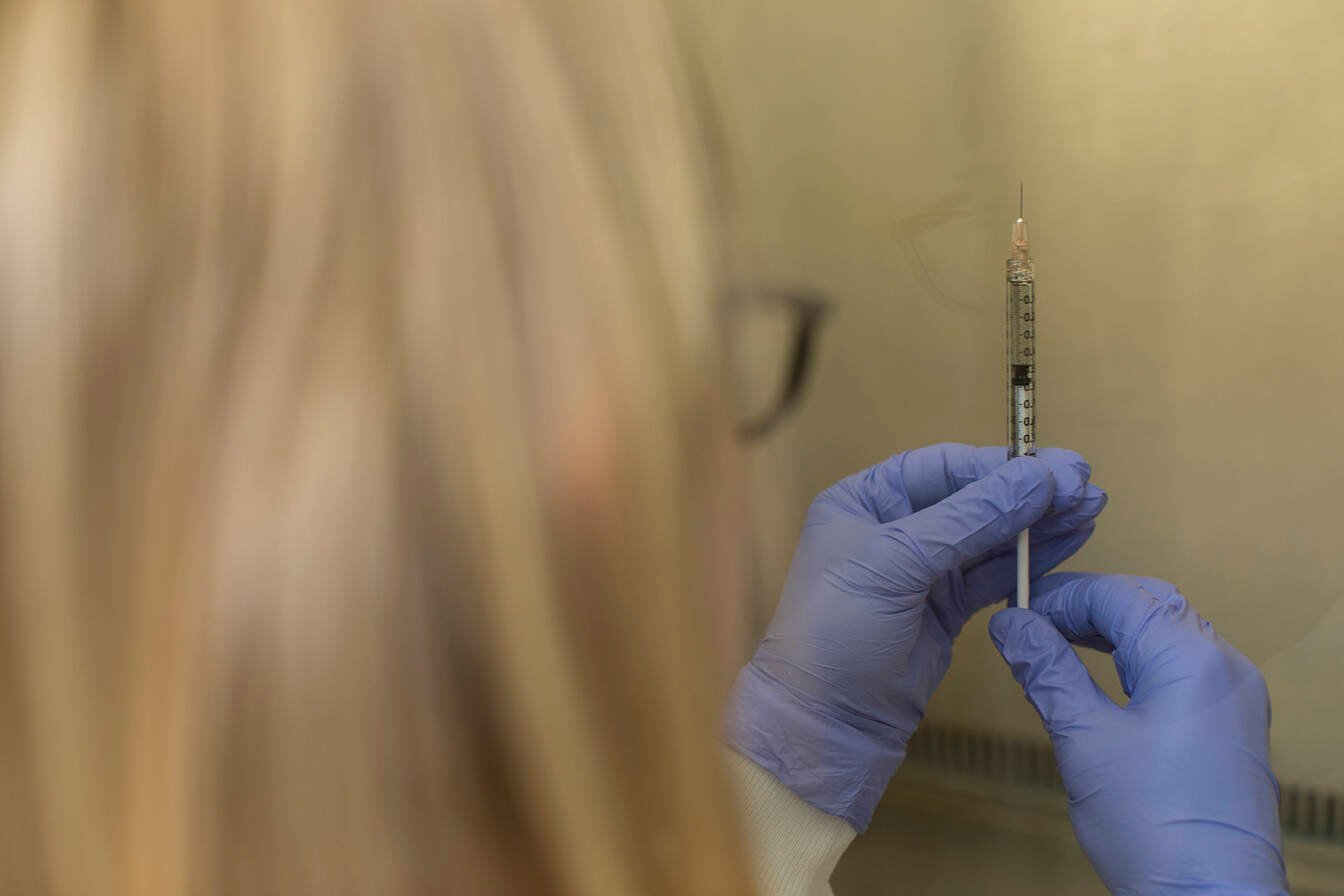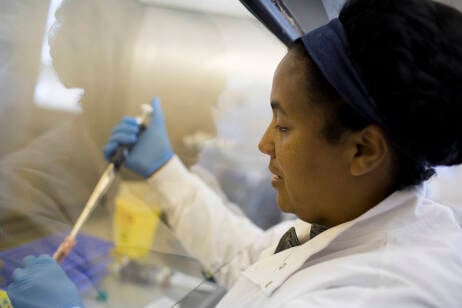
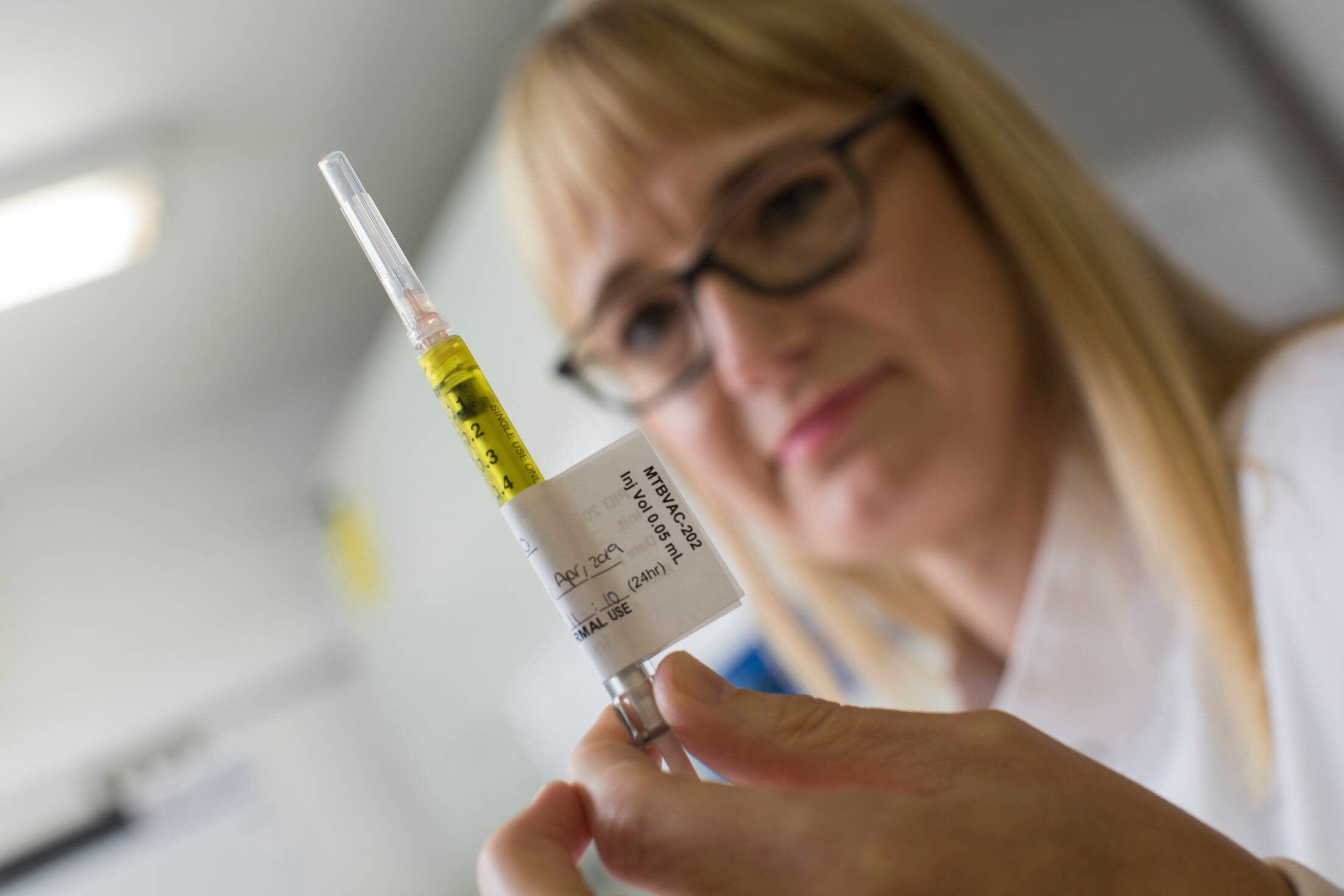
scroll down

This work will complement a further commitment recently made by EDCTP, to support a phase III trial in newborns, through the MTBVACN3 project. This trial, which is due to launch in 2022 and will ultimately recruit 7000 newborns in South Africa, Senegal and Madagascar, will be based on the optimal dose identified in the MTBVAC-newborns trial.
By ensuring that studies in babies take place at the same time as other trials in adults, MTBVACN3 will ensure that they would be among the first groups to benefit from the new vaccine if trials confirm its efficacy.
Also in 2021, MTBVAC’s developers, Biofabri, and IAVI announced plans to partner on the clinical evaluation of MTBVAC. IAVI will support the further development of MTBVAC and mobilisation of resources for phase III trials in adults and adolescents.
Newborns are typically given BCG vaccine at birth to protect against TB – about 100 million infants are vaccinated with BCG each year. However, BCG provides variable degrees of protection, does not protect against all forms of TB and is less effective when given at older ages.
MTBVAC is a live attenuated form of Mycobacterium tuberculosis (Mtb), the cause of TB. Following successful phase I safety studies in Europe and South Africa, it is being evaluated in an EDCTP-funded phase II study in South Africa, focusing on HIV-negative newborns. The protective efficacy of three different MTBVAC vaccine dose levels is being compared with BCG. During 2021, the trial completed its enrolment of nearly 100 newborns.
Exciting progress is being made in the development of MTBVAC, a possible alternative to BCG vaccination to prevent TB.
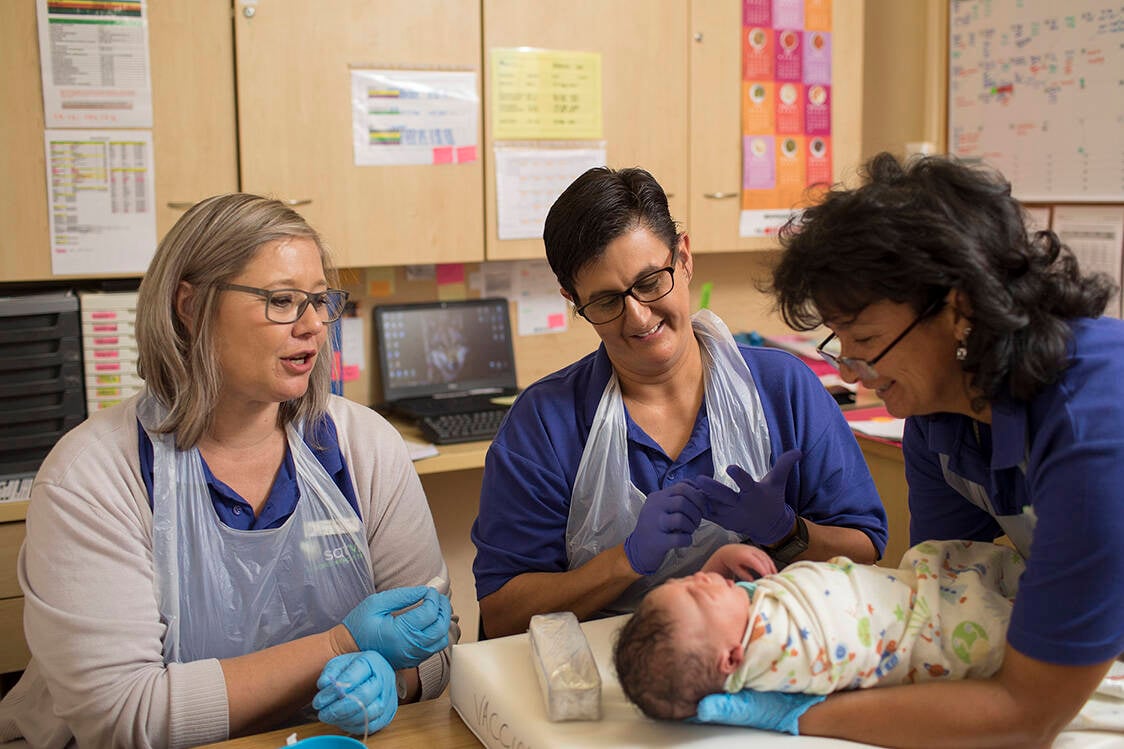
An alternative to BCG for newborns
Researcher at SATVI, South Africa
The MTBVACN3 team
Project: MTBVAC-Newborns trial
Project lead: Ms Ingrid Murillo, Biofabri SL, Spain
Countries involved: Madagascar, the Netherlands, Senegal, South Africa, Spain
Year funded: 2018
EDCTP funding: €5.5 M
Grant agreement: RIA2016V-1637
Project website: www.tbvi.eu/for-partners/mtbvacn3
What comes next for the project?
Ingrid Murillo: The phase III clinical trial is a big step in the path towards the licensing of the vaccine, so we can have a new improved TB vaccine that is effective against all forms of TB disease in infants, children and adults, and also safe for use in immune-compromised persons, including those with HIV infection.
A total of 7,120 newborns will be vaccinated from August 2022 during the 4-year trial. The phase III trial incorporates three case-driven assessments for futility and efficacy. Such a pathway for the MTBVAC clinical development would allow for the neonatal vaccine to be made available sooner (estimated 5 years) with the potential to offer a greater magnitude of protection compared to current BCG vaccine. Such a saving in time would have a major public health benefit, given that the BCG vaccine has been reported to have a variable protective effect depending on the form of TB and the geographical location.
The phase III trial will include a small cohort of newborns from Madagascar and Senegal, which will contribute safety and immunogenicity data from these diverse populations. However, the incidence of childhood TB in both Madagascar and Senegal is several-fold lower than in South Africa, such that very few TB cases would be expected in these countries. Therefore, it would not be feasible or ethical to enroll large numbers of newborns from these countries into the larger efficacy cohort.
In 2021, the project completed the enrolment of newborns in the phase IIa trial. What has this trial shown so far about the vaccine? And how will the subsequent MTBVACN3 phase III trial further impact on the research of the vaccine?
Ingrid Murillo: The MTBVAC phase IIa trial in newborns was the dose-defining study, carried out before the MTBVACN3 trial. Since follow up of the last participant was completed only recently, the final data of the study have yet to be analysed. However, in order to minimise the delays in the start of the phase III trial, the MTBVAC phase IIa data on safety and immunogenicity was analysed by an independent and unblinded biostatistician who provided the data to the data safety and monitoring board for review and determination of the MTBVAC dose selection for the MTBVACN3 study.
MTBVACN3 is an important step towards the development of this vaccine, as it will provide crucial data on the efficacy of MTBVAC.
What is special about the MTBVAC candidate vaccine and how does it compare with the BCG vaccine?
Ingrid Murillo: Bacille Calmette Guérin (BCG), currently the only licensed vaccine against TB, protects against disseminated TB (miliary TB and TB meningitis) in children, but provides inconsistent protection against the predominant form of pulmonary TB in all age groups. MTBVAC is a live attenuated Mycobacterium tuberculosis (Mtb) vaccine considered to confer more durable T-cell immune responses to a wider spectrum of mycobacterial antigens compared to BCG, which is derived from M. bovis. MTBVAC contains most of the genes deleted in BCG and presents a wider collection of mycobacterial antigens to the host immune system, promoting a broader immune response and longer-lasting T-cell response against TB than BCG.
Ms Ingrid Murillo
(Spain)

scroll down
The MTBVACN3 project is evaluating an innovative new vaccine that could provide newborn babies with better protection against TB.
Project Q&A
